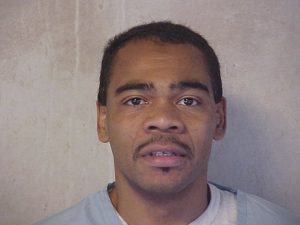
The U.S. Supreme court wants to hear more arguments and more time in Oklahoma’s challenge to the territorial boundaries of the Muscogee (Creek) nation. It’s a case that Oklahoma Attorney General Mike Hunter contends could have an impact on millions of Oklahomans when it comes to prosecuting major crimes and not just murder cases.
The high court on Thursday decided to store the Carpenter v. Murphy case to its calendar for another round of arguments that will be heard when the next Supreme Court term begins in October.

Carpenter v. Murphy involves George Jacobs, a member of the Muscogee (Creek) Nation, who according to Hunter was brutally murdered by Patrick Murphy in 1999. Murphy was convicted and appealed his case and the U.S. 10th Circuit Court of Appeals overturned the conviction because the murder happened on Indian land. He contends since the crime happened on Indian land and he is a member of the tribe, the state had no legal right to prosecute the case.
This case has implications for millions of Oklahomans, both tribal and non-tribal citizens,” Attorney General Hunter said. “It is vital to the state that the Supreme Court justices make the right decision on behalf of all Oklahomans. While today’s court action does not alter the status quo, it demonstrates the care and consideration the justices are putting into this case. Meanwhile, my team and I will continue proactively working with our tribal partners on our shared interests. A top priority for our office is to continue to preserve and grow our unity and prosperity. ”
Hunter vowed to fight and argue the case again before the Supreme court and “ensure justice is served for the family and loved ones of George Jacobs.”
In question is whether the 1866 territorial boundaries of the Muscogee (Creek) Nation is an Indian reservation, with implications for state prosecution of major crimes across all Eastern Oklahoma, dating back to statehood, including the City of Tulsa.
The U.S. Supreme Court granted the state’s request to hear the case in May 2018 after the 10th Circuit Court of Appeals reversed the conviction of Patrick Murphy, who confessed to the brutal mutilation and murder of George Jacobs in 1999. Murphy received the death penalty.
Last November, the parties in the case argued before the U.S. Supreme Court and later submitted additional briefs at the request of the court.
But the case could also raise serious questions that if the state has no legal right to prosecute a murder case involving an Indian on Indian land, does it have the right to enforce federal environmental laws? And what about enforcement of pollution cases involving the Oklahoma Department of Environmental Pollution.





